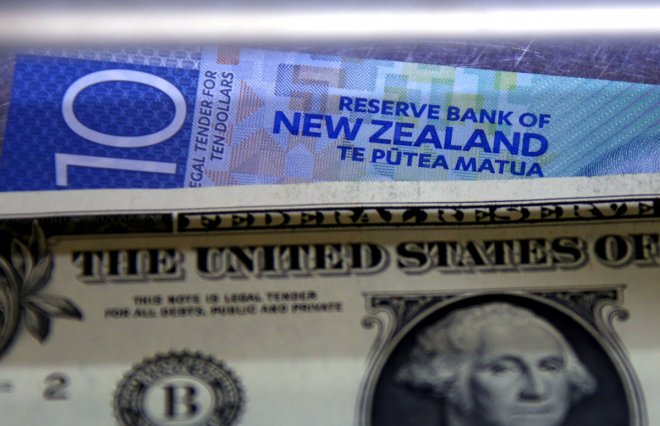
The New Zealand dollar jumped to a 5-month high against the US dollar on Tuesday (Feb 7) as a survey from the Reserve Bank of New Zealand showed inflation expectations have increased in the country, and investors are now expecting an impact of the same on the Feb 9 monetary policy decision.
Meanwhile, the confirmation from the Finance Minister Stephen Joyce that the RBNZ Governor Graeme Wheeler will step down as his second term ends on September 26, did not have any noticeable impact on the NZ currency according to analysts.
NZD/USD traded as high as 0.7376 in morning deals, its highest since early September last year, and up more than 0.7% on the day. The RBNZ has forecast a fall back to 0.70 region by end of June and to 0.680 by the year end, at the survey.
Against the euro, the kiwi dollar raced to a 22-month high on Tuesday, also aided by broad euro weakness, mainly after the European Central Bank indicated its willingness to extend quantitative easing if need be.
EUR/NZD plunged to 1.4537, its lowest since April 2015, and down more than 1% on the day.
Hawkish Signals
For New Zealand, expectations for inflation for the one year horizon has risen to 1.56% as per the latest central bank survey from 1.29% estimated three months ago, the RBNZ said on Tuesday. The two-year ahead rate has gone up to 1.92% from 1.68%.
The central bank had cut the official cash rate (OCR) to 1.75% in November and said that it would remain there for next three years. However, rising inflation expectations may prompt the authorities to revise its forecast with a hawkish bias, some analysts noted.
In addition, the consumers price index rose 0.4% in the three months ended December 31 for an annual pace of 1.3% getting the economy back into the central bank's 1-3% target range for the first time in two years. This indicator also adds to the rising inflation expectations and the RBNZ may now consider a rate hike some time in 2018, according to a section of the market.
The RBNZ also said the 90-day bank bill rate is expected to be 2.02% at the end of March 2017 and at 2.22% by the year end from 1.97% when the survey was taken. The 90-day bill rate in New Zealand is considered as a proxy for the OCR.
The central bank has also sounded more optimistic about the GDP growth in the country. At the year end, real GDP growth is forecast to be 3.11% now from 2.75% projected at the previous survey. The 2-year-ahead forecast has moved up to 2.88% from 2.51%.
The unemployment rate is expected to 4.79% from 5.2% now in a year, the RBNZ said.









